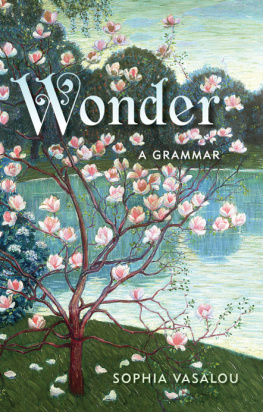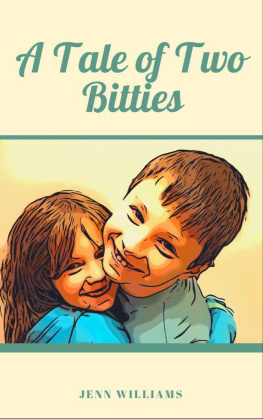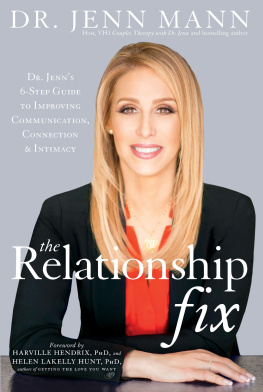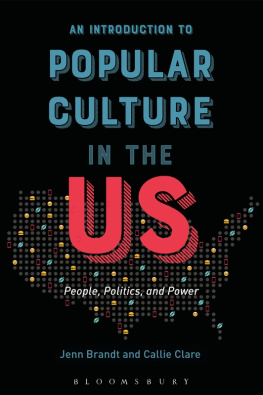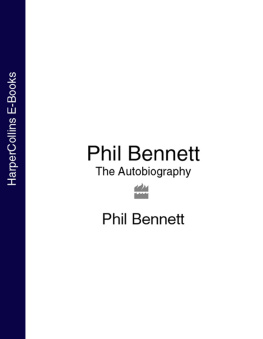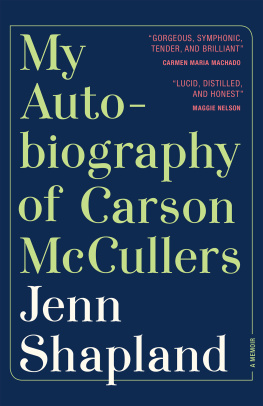Bennett Jenn - Wonder a grammar
Here you can read online Bennett Jenn - Wonder a grammar full text of the book (entire story) in english for free. Download pdf and epub, get meaning, cover and reviews about this ebook. City: Albany;New York, year: 2015, publisher: State University of New York Press;SUNY Press, genre: Home and family. Description of the work, (preface) as well as reviews are available. Best literature library LitArk.com created for fans of good reading and offers a wide selection of genres:
Romance novel
Science fiction
Adventure
Detective
Science
History
Home and family
Prose
Art
Politics
Computer
Non-fiction
Religion
Business
Children
Humor
Choose a favorite category and find really read worthwhile books. Enjoy immersion in the world of imagination, feel the emotions of the characters or learn something new for yourself, make an fascinating discovery.
- Book:Wonder a grammar
- Author:
- Publisher:State University of New York Press;SUNY Press
- Genre:
- Year:2015
- City:Albany;New York
- Rating:5 / 5
- Favourites:Add to favourites
- Your mark:
- 100
- 1
- 2
- 3
- 4
- 5
Wonder a grammar: summary, description and annotation
We offer to read an annotation, description, summary or preface (depends on what the author of the book "Wonder a grammar" wrote himself). If you haven't found the necessary information about the book — write in the comments, we will try to find it.
Wonder a grammar — read online for free the complete book (whole text) full work
Below is the text of the book, divided by pages. System saving the place of the last page read, allows you to conveniently read the book "Wonder a grammar" online for free, without having to search again every time where you left off. Put a bookmark, and you can go to the page where you finished reading at any time.
Font size:
Interval:
Bookmark:

Wonder
Wonder
A GRAMMAR
Sophia Vasalou

Cover image: Magnolia (oil on canvas), List, Wilhelm (18641918) / Private Collection / Bridgeman Images
Published by State University of New York Press, Albany
2015 State University of New York
All rights reserved
Printed in the United States of America
No part of this book may be used or reproduced in any manner whatsoever without written permission. No part of this book may be stored in a retrieval system or transmitted in any form or by any means including electronic, electrostatic, magnetic tape, mechanical, photocopying, recording, or otherwise without the prior permission in writing of the publisher.
For information, contact State University of New York Press, Albany, NY
www.sunypress.edu
Production, Jenn Bennett
Marketing, Michael Campochiaro
Library of Congress Cataloging-in-Publication Data
Vasalou, Sophia.
Wonder : a grammar / Sophia Vasalou.
pages cm
Includes bibliographical references and index.
ISBN 978-1-4384-5553-2 (hardcover : alk. paper) ISBN 978-1-4384-5554-9 (ebook) 1. Wonder (Philosophy) I. Title.
| B105.W65V37 2015 128'.3dc23 | 2014014975 |
10 9 8 7 6 5 4 3 2 1
To my father,
whose childlike wonder is only a small part of his wisdom
Why dont you put pen to paper yourself, Zorba, to clear up all the mysteries of the world for us?
Why dont I, you ask? Because I live them, the mysteries you talk about, and Ive no time left over. And thats how it came to be that the world was made over to the scholars; those who experience the mysteries have got no time [for writing]; and those whove got time, dont experience the mysteries.
Kazantzakis, Zorba the Greek
Contents
Acknowledgments
It is one of the quieter themes of this book that we owe our emotional livesincluding our arrival at emotional experiences important enough to compel us to make them the subject of thoughtto complex journeys of formation whose roots and foundations are not always open to view. Yet if, scratching the topsoil of my own history, I were to search for my debts, I would find the first one in my encounter with the early Arabic philosophers as a postgraduate student in London many years ago, and especially with al-Kindi, whose reformulation of philosophical arguments against the eternity of the world opened doors in my mind to possibilities of wonder that turned my own world on its head. The vein of experience has followed its usual vicissitudes since then, sometimes thinning, other times thickening, and all the while increasing the debts I owe not only for experiences of wonder, but also for the possibility of making these experiences the subject of more reflective thought.
For the latter, I am particularly grateful for the opportunities I was given during my term as a junior research fellow at Gonville and Caius College in Cambridge, which allowed me unfettered time to think about things that mattered. I am also grateful to the participants of the conference on wonder I organized with Olivier Doron in Cambridge in 2008many of them contributors, later on, to a book of interdisciplinary essays on wonderas well as to the British Society of Aesthetics and the Centre for Research in the Arts, Social Sciences and Humanities in Cambridge, which supported the event. More recently, I owe a concrete material debt to the Andrea von Braun Stiftung, which provided financial support for the later stages of the writing. The very last stage of writing was made possible by a research fellowship at Oxford Brookes University, and I would particularly like to thank Constantine Sandis for lending a thoughtful eye to parts of the work, and the participants of a seminar on the topic for their comments and questions. I am also grateful to my editor, Andrew Kenyon, for his warm support throughout this process, and for believing in the book.
These debts are just a handful of many others, lying deeper in the ground and scattered more diffusely. With such a history of debts, this book would be content if it could one day figure in the history of someone elses debts for experiences or thoughts that made a difference.
An earlier version of chapters 1 and 2 appeared as Wonder: Toward a Grammar, in Practices of Wonder: Cross-Disciplinary Perspectives, ed. S. Vasalou (Eugene, OR: Pickwick, 2012), 1663, and is used by kind permission of Wipf and Stock Publishers, www.wipfandstock.com.
Introduction
Wonder: known and unknown, familiar and strange; arched with rainbows, tensed with shadows; source of pleasure and cause of suffering; pointing beyond itself, pointing to nothing but itself. The work that followspitching itself on the side of the question rather than the side of the answer, on the side of the long essay (with its heuristic undertones of experiment and overture) rather than the complete treatise (with its overtones of mastery and closure)took shape because of a hunch that a closer reflection on wonder was long overdue. Yet why even talk of hunches or of dues, as if ones thinking was always concerned to be on the pulse or in tune, scenting out intellectual mood or cultural tempo and making sure it is in time or ahead of it? The simple truth is that it belongs to wonders physiognomy that it commands to be thought out when it has once struck; and this is because thinking it is one of the few means by which one might hope to retain it, and if nourishing were possible, even conceivably to feed it.
The thinking that follows passes through several pathways, some of which cross and cross again, and almost all of its pathways can be counted as ways of asking a single question in different inflections: What is wonder? and again: Why does wonder matter? In following these pathways, this meditation will have speed enough to make for breathlessness. So it is worth pausing at its beginning to briefly place in view what lies ahead; and this means saying something more about how this meditation took its own beginnings and its present shape.
For every reflection needs a footholdeven reflection demanded by experienceand every quest needs a beginningeven a quest for the wonder that supplies beginnings to reflective questswhich opens up the space for pursuing it in structured ways. Like all other trains of reflection, this one owes many debts to those who have already opened up its specific space in both the recent and more distant past, foregrounding the salient themes and orienting questions through which wonder may be thought. But one of the most important debts it owes, both for its initial foothold and the structure of its reflective space, is to a recent articulation of wonder whose appeal is matched by its ability to galvanize thought; and whose galvanizing power is that of all aphoristic assertions, which offer crisp claims about what is in ways that invite one to plough up the earth around them.
It is a spirit of aphorism to which our mode of questioning would often seem to commit us from the very first breath. What is wonder? we ask; and we expect to be answered with unified claims about what wonder is or isnt. Rising to meet this question in a work that addresses the complex status of wonder as both stimulus of reflection and aesthetic reaction, Philip Fisher recently offered us a crisp formulation by way of response. Wonder: a sudden experience of an extraordinary object that produces delight. It is a viewFisher calls it an essential definitionwhose appeal is linked to the way it speaks to many of our strongest intuitions, to those immediate intuitions that first assemble themselves when we reach for the physiognomy of wonder. What is wonder? we ask, and we reach for images of the face that children present to the world when confronting something seen for the first time, for the wide-eyed looks of pleasure and gasps that are suddenly torn from their lips. Reaching for images closer to our own present, we may recognize this wonder in the sudden exclamation of pleasure that escapes us before an
Font size:
Interval:
Bookmark:
Similar books «Wonder a grammar»
Look at similar books to Wonder a grammar. We have selected literature similar in name and meaning in the hope of providing readers with more options to find new, interesting, not yet read works.
Discussion, reviews of the book Wonder a grammar and just readers' own opinions. Leave your comments, write what you think about the work, its meaning or the main characters. Specify what exactly you liked and what you didn't like, and why you think so.

